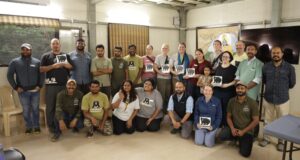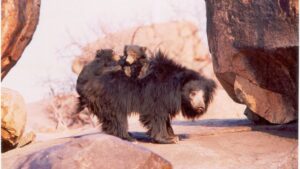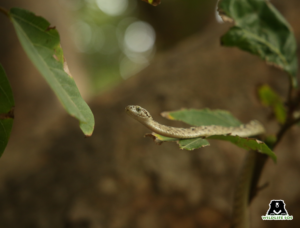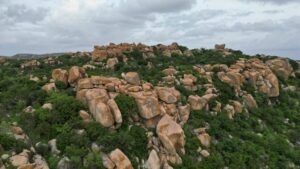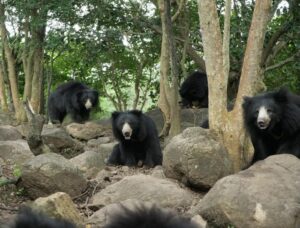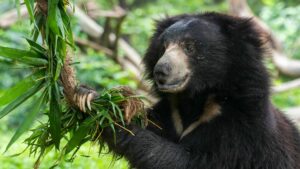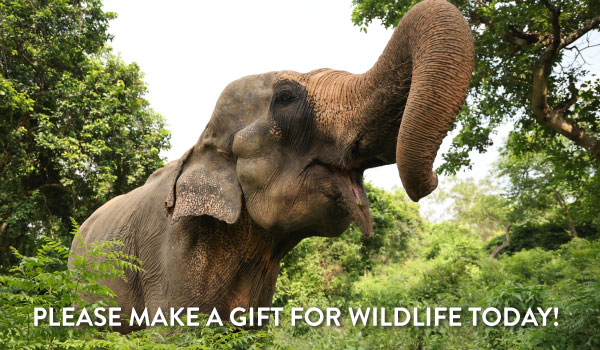India is home to over 2,700 captive elephants, many used in begging, tourism, religious ceremonies, and wedding processions, often under harsh conditions, with poor nutrition and limited access to veterinary care. To address this, Wildlife SOS launched Haathi Sewa, the country’s 1st mobile elephant health unit, which travels across India providing preventive care, treatment, and support to working elephants in need. By conducting health camps and engaging directly with elephant owners and mahouts, the initiative aims to ensure timely medical intervention and promote responsible care, preventing cases where help arrives too late. In this series of blogs, we share stories of the elephants attended to by Haathi Sewa — stories of relief, recovery, and renewed dignity.
Among the 2,700 captive elephants, a significant number are privately owned, sometimes even illegally owned or without proper documentation. These elephants often face harsh conditions on the streets, with inadequate nutrition and limited access to quality medical care. In many cases, this is due to the financial constraints of their owners and the general lack of specialised veterinary services available for elephants.
Recognising this urgent need, Wildlife SOS launched India’s 1st mobile elephant health unit – Haathi Sewa (Hindi for “in service to elephants”).
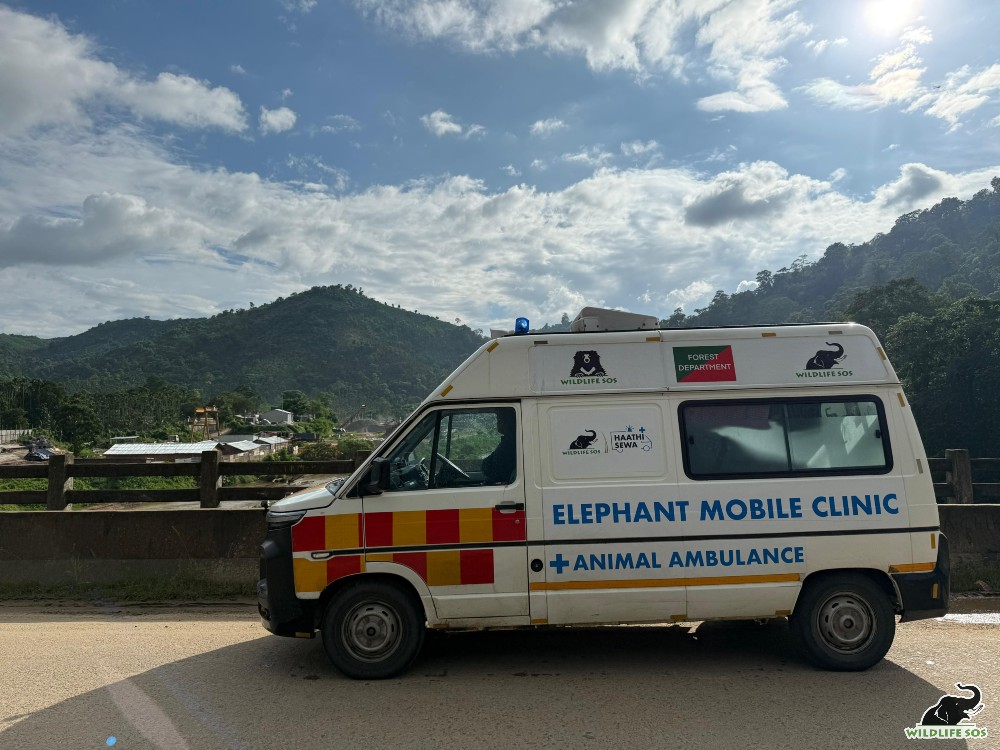
This pioneering mobile clinic travels across the country, reaching locations where elephants are being used for various purposes, to provide them with preventive care and essential medical treatment. The goal is to ensure that no working elephant is left without access to veterinary support — so that cases like Ramu or Moti, where we were called only when the two were at the brink of death, are no longer repeated.
Through regular health camps conducted across India, the Haathi Sewa team not only offers treatment but also works to educate elephant owners and mahouts on responsible care practices.
We begin this series with Monimala, an elderly female elephant that urgently required professional analysis and prescribed remedies to heal her.
Case study: Monimala
Age: approx. 53+
Sex: Female
Location: Assam
Our Haathi Sewa camp had been set up in Assam for several days, during which our team visited various elephant owners and mahouts to build a sense of trust and cooperation, and encourage them to bring their elephants for free health checkups. It was during this outreach initiative that Monimala’s owners heard about us, and brought her to the camp for treatment.
Monimala, an elderly female elephant, was suffering from bilateral temporal abscesses – painful, pus-filled swellings that had shown little improvement despite earlier treatment by a local vet. Our team cleaned and flushed the wounds with antiseptic, and administered a tissue-repair bolus packed with essential vitamins, amino acids, and minerals to support faster healing. Knowing how expensive and difficult it is for local owners to access quality medication, our team provided a month’s worth of supplies and trained the mahouts on how to administer them properly.
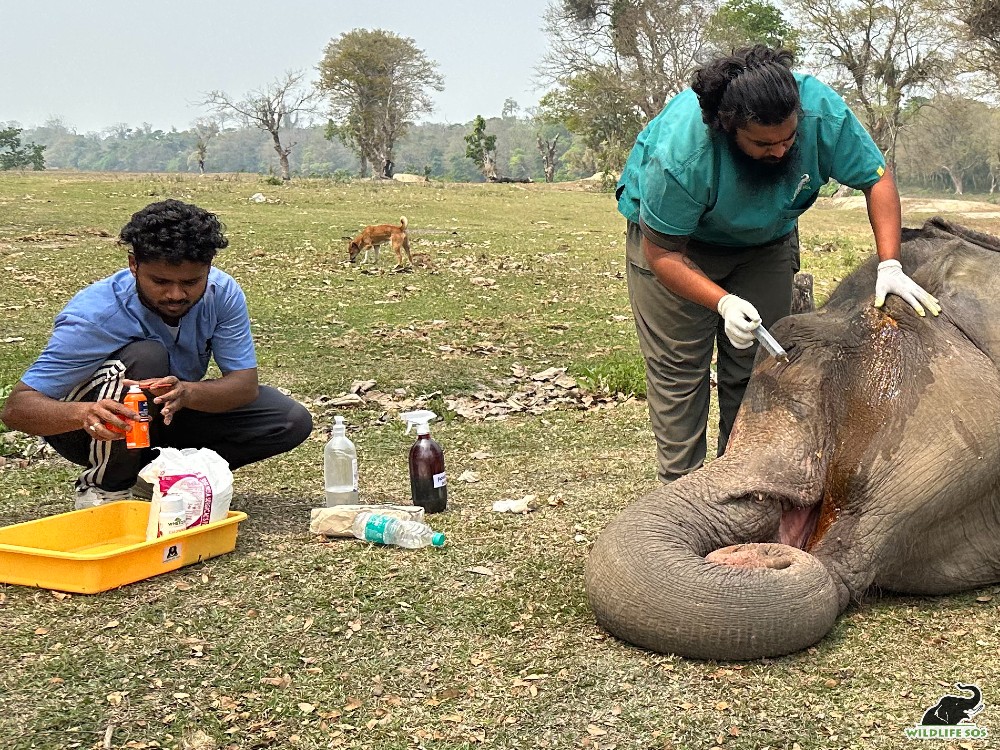
After a timely follow-up, we believed the job was done at our end. But just two days later, Monimala returned from her morning forest foraging with a limp. Initially dismissed as a minor injury, the limp worsened overnight, and the owner had to reach out to us for help.
Our team responded immediately. Monimala was diagnosed with a forelimb sprain on her right foot, likely caused by navigating uneven terrain. She was given pain relief medication and cold fomentation, which eased the swelling. Within three days, she was walking normally again. Her mahout was also trained in basic first-aid techniques like hot fomentation, empowering him to manage minor injuries on his own.
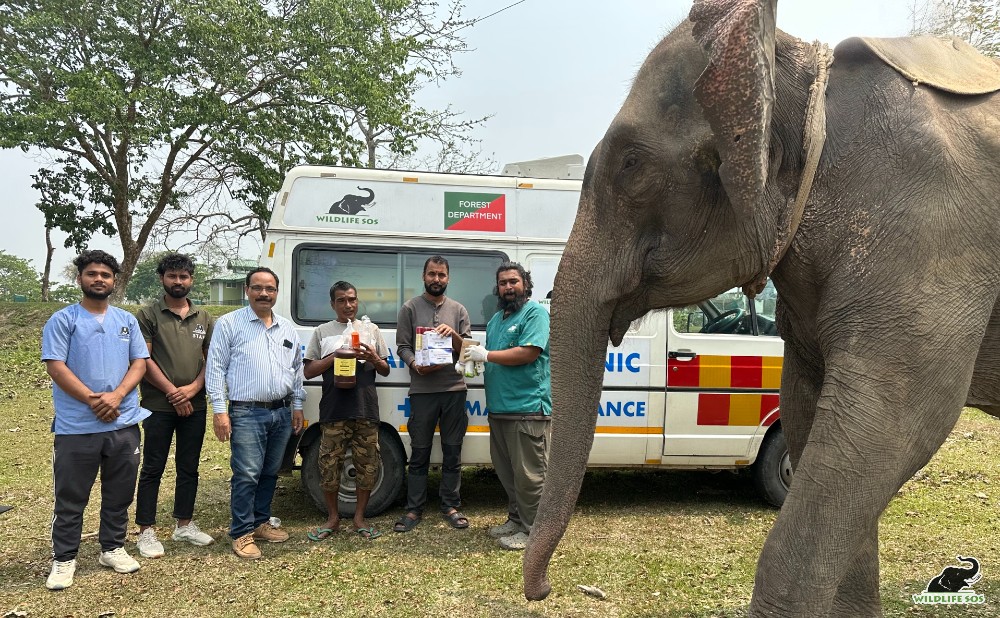
At first, Monimala’s owners were hesitant about getting her medically examined as the cost of ongoing treatment concerned them. But they were highly relieved and even surprised to learnDiscover how Wildlife SOS’s Haathi Sewa — India’s first mobile elephant health unit — travels across the country to provide free, life-saving care to working elephants like Monimala, ensuring timely treatment, relief, and dignity. that the Haathi Sewa camp was entirely free, and was set up to ensure working elephants receive the care they deserve. Since then, they’ve stayed in touch with our team, updating us on Monimala’s progress. Her abscesses are healing well, and she continues to recover.
Despite her being unfamiliar with our team, Monimala responded calmly to treatment, and her owners expressed deep gratitude for the timely care and support they received from our Haathi Sewa team.
Featured image: Mradul Pathak/ Wildlife SOS

